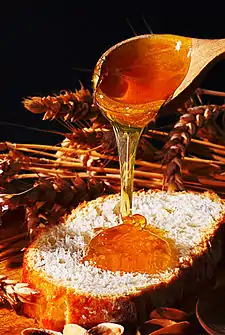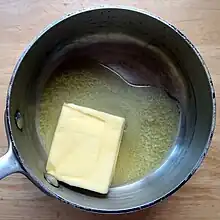< Reconstruction:Proto-Turkic
Reconstruction:Proto-Turkic/kömbe
Proto-Turkic
Etymology
According to Róna-Tas, borrowed from a Slavic language prior to the 10th century, ultimately from Proto-Slavic *gǫba (“mushroom”).[1] Compare also Hungarian gomba, a borrowing from Slavic.[2] Note also the unusual initial voicing in Tatar and Bashkir.
Declension
Declension of *kömbe
| Singular 3) | |
|---|---|
| Nominative | *kömbe |
| Accusative | *kömbeni, *kömbeg 4), *kömbenig 1) |
| Genitive | *kömbeniŋ |
| Dative | *kömbeke |
| Locative | *kömbede |
| Ablative | *kömbeden |
| Allative | *kömbegerü |
| Instrumental 2) | *kömben |
| Equative 2) | *kömbeče |
| Similative 2) | *kömbeleyü |
| Comitative 2) | *kömbeligü |
1) Possibly in Pre-Proto-Turkic.
2) The original instrumental, equative, similative & comitative cases have fallen into disuse in many modern Turkic languages.
3) Plurality is disputed in Proto-Turkic. See also the notes on the Proto-Turkic/Locative-ablative case and plurality page in Wikibooks.
4) Found in the Old Turkic era.
2) The original instrumental, equative, similative & comitative cases have fallen into disuse in many modern Turkic languages.
3) Plurality is disputed in Proto-Turkic. See also the notes on the Proto-Turkic/Locative-ablative case and plurality page in Wikibooks.
4) Found in the Old Turkic era.
Descendants
See also
| Foods - *yẹ̄miĺčler, *yẹ̄miĺčsāyïn | |||||
|---|---|---|---|---|---|
 Barley |
barley: *arpa |
Pea |
beans, peas: *burčak |
 Wheat |
farro, wheat: *bugday |
|
Jujube |
jujube: *yidge |
 Strawberry |
strawberry: *yidgelek |
Apple |
apple: *almïla |
Hazelnuts |
hazelnut: *bōńurï |
Walnuts |
walnut: *yaŋgak |
 Honey |
honey: *bạl |
|
Millet |
millet: *tạrïg |
 Onion |
onion: *sōgun |
Salt |
salt: *tūŕ |
 Egg |
egg: *yumurtka |
 Butter |
butter: *yāg |
 Mushroom |
mushroom: *kömbe |
|
Radish |
radish: *turp, *turma |
Carrot |
carrot: *turma | ||
References
- K. Rédei; Róna-Tas, Andreas (1983) "Early Bulgarian Loanwords in the Permian Languages", in Acta Orientalia Academiae Scientiarum Hungaricae, volume 37, page 7
- gomba in Zaicz, Gábor (ed.). Etimológiai szótár: Magyar szavak és toldalékok eredete (‘Dictionary of Etymology: The origin of Hungarian words and affixes’). Budapest: Tinta Könyvkiadó, 2006, →ISBN. (See also its 2nd edition.)
- Starostin, Sergei, Dybo, Anna, Mudrak, Oleg (2003) “*kömbe -lek”, in Etymological dictionary of the Altaic languages (Handbuch der Orientalistik; VIII.8), Leiden, New York, Köln: E.J. Brill
This article is issued from Wiktionary. The text is licensed under Creative Commons - Attribution - Sharealike. Additional terms may apply for the media files.